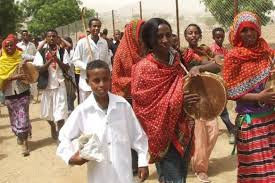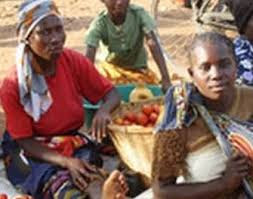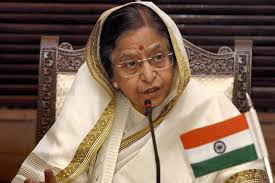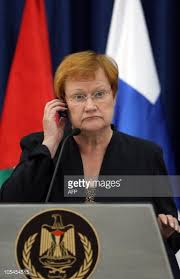Do you know the names of nicknames in each country.? It is true that not all countries have the nickname, but many countries have a unique nickname background of the event or events in the country. On this occasion I will try to share information Nickname State along with the reason. Hopefully it will be useful for you all.
We discuss the names of nickname countries in the world :
Nicknames per country.
You know, every country has the nickname of each, but each state also has different names for each State. The nickname was given based on the characteristics and uniqueness of the country. Here is a list of nicknames of countries in the world. just buddy ya see below.
1. United States with the nickname of Uncle Sam.
United States obtain the nickname 'Uncle Sam' on September 7, 1813.
The name is related to Samuel Wilson, a meat introductory USA in
New York. He supplies the air vats of meat for US troops in the War of 1812.
Wilson casks branded with 'US' stands for United States (US), but the
soldiers think of it as an abbreviation of 'Uncle Sam (Uncle Sam).' local
newspapers picked up the story and 'Uncle Sam' began to be accepted as
the federal government calls the United States.
2. Saudi Arabia with State Oil nickname.
Saudi Arabia is an oil-producing countries in the world. Saudi Arabia is
a rich country that relies on oil as one of the supporting sectors of the
economy. Enormous wealth derived from oil, it helps the game and force the
formation of the role of the Saudi royal family both at home and abroad.
Industry generally relies on Petroleum and Petrochemical sector, especially
after the discovery of oil sources on March 3, 1938.
3. Argentina with the nickname Tanggo State.
Argentina also quite popular with the dance 'tango' her, especially in cities
such as Buenos Aires. Hot dance is very famous all over the world.
Although, the European influence has been fused with the arts, writing and
lifestyle of the people of Argentina, the country is still able to preserve its
own identity. It is apparent from the writings of the famous Argentine
employees such as Jorge Luis Borges and Manuel Puig, and football
players of his artistic like Diego Maradona and Lionel Messi.
4. Australia with Kangaroo State nickname.
Kangaroos or kangaroo are mammals that have a pouch (marsupial).
These animals include unique to Australia. The word kangaroo taken from
aboriginal languages gangguru. There are several species of kangaroo
living in the island of Papua New Guinea and Indonesia.
But the existence of these animals outside Asutralia meager amount and
the largest population was in the country of Australia.
5. The Netherlands with the nickname of windmill.
Initially, 70% of the Netherlands is the sea. To enlarge its territory, the beach
around the edge region of the Netherlands was dredged and made dam.
In the project magnification of the region, the windmills that plays an
important role as a means to divert and water dam, as well as to capture
and divert a lot of wind. With the development of windmill technology was
now more developed functions, among others, be used as an auxiliary in the
field of agriculture and industry
6. Brazil by the nickname of State Samba.
Samba dance is a dance typical of Bazil. Brazilian culture is a culture
inherited from the colonial powers, namely Portugal. Can be seen most
culturally shaped like a Latin country, but some are fused with Brazilian
culture such as dance Samba. Samba dance is very unique, distinctive
culture of Brazil is famous any hemisphere. Even samba dance is widely
applied as in the ball game. We could see a slick movements of players like
Brazilian samba dance so Kesebalasan Brazil dubbed with the name of the
Samba Team.
7. Bulgaria dubbed the Rose Bud State.
Bulgaria is a producer of Rose Oil Best And Most Expensive In The World
If you want to find a perfume famous people and has the best quality, it will
associate with the city of Paris as the center of world fashion. But did you
know that the best rose oil are used as a mixture of perfume is not from
France, but from the Balkans, Bulgaria.
8. China with the nickname of the Bamboo Curtain.
Chinese bamboo plants (Bambusa multiplex) is famous for its quality,
which is still to be the best in the entire world. Chinese bamboo is very
strong and not easily broken. Are called blinds because China is a socialist
sensible so very closed to the outside world.
9. Philippines with the nickname granary.
Philippines is famous for its hill paddy farming, which was introduced about
2,000 years ago by a tribe of Batad. The rice-rice hill situated on the slopes
of Mount Ifugao and at an altitude of 5,000 feet above sea level. The extent
covers 4,000 square miles and is traditionally cultivated without the use of
fertilizers. He was declared a World Heritage Site by UNESCO (United
Nations Educational, Scientific, and Cultural Organization) in 1995.
10. Indian subcontinent with the nickname.
Geologically, India and most countries in other South Asian region has its
own tectonic plates, the Indian Plate, which is separate from the other parts
of Eurasia and was once a small continent before colliding with the
Eurasian Plate. Even now the Indian Plate continues to move northward,
resulting in the higher Himalayas a few centimeters each decade.
Then the Indian state is considered as a subcontinent.
11. Indonesia nicknamed the Emerald of the Equator.
Indonesia is the only country through which the largest island of the
equator or the Equator. Geographically, Indonesia is located at
coordinates 6 LS - 11 LU. There is a proper city traversed by the equator
which is the provincial capital of West Kalimantan, Pontianak.
Because of these features, built on the Equator Monument Pontianak.
The nickname Emerald Equator describe the state of Indonesia as a
country that is very beautiful, like emeralds adorn the Equator.
12. United with the nickname The Black Country.
Country United is an advanced industrial country in the world and is the
source of the country's economic backbone. British industrial center located
in Birmingham and Sheffield. The air in the area always looks black from
the fumes covered by the industry very much, so that the industrial areas in
the UK are often called "The Black Country". In addition, this nickname
pinned because it was known as the advanced industrial countries
13. State of Iraq with the nickname of 1001 Nights.
First Iraqi territory included in the Persian region.
The nickname "Land of 1001 Nights" is taken from the story that occurred
in Persia in ancient times.
Once, a sultan in mainland Persia named Raja Syahriyar, furious once
caught his wife was having an affair. King Syahriyar directly decapitate his
wife with a man who became mistresses. One time King Syahriar marries
Scheherazade. Scheherazade tells the story continues every night and
always ended up hanging (suspense). The story is delivered Scheherazade
always stories in the story so that even though the story is finished the
frame story is never finished.
The stories told Scheherazade is the familiar tale of Aladdin and the Lamp
Testament, the sailor Sinbad, Ali Baba, Harun Al-Rashid and Abunawas,
and so forth. Finally, during the 1001 nights Scheherazade freed from
beheading in 1001 -and the world also gets a story and drew the king
Syahriyar the punishment, and remains beloved Scheherazade became
empress and her people teutama girls who feel safe from the terrible king
rules
14. Italy with the nickname Spaghetti State.
Italian Foreign called Spaghetti Spaghetti because the food is typical
Italian food. Spaghetti noodles Italian is shaped like a long stick, which
generally cook 9-12 minutes in boiling water al dente, which means not
stick in the teeth, not too raw or too ripe. How to eat varied but the most
famous being the Spaghetti alla Bolognese sauce with minced meat is then
sprinkled with grated Parmesan cheese.
15. Japan with the Rising Sun nickname.
Japan called Nippon or Nihon in Japanese. Nippon designation often used
in official business, including the country name in the Japanese currency,
stamps, and international sporting events.
Meanwhile, the Nihon designations used in the affairs of the unofficial as
everyday speech.
The word Nippon and Nihon mean the Rising Sun Country. The name is
derived from the official delegation of the Chinese state, and refer to the
relative position of this country on the coast of the Pacific Ocean in the
east of Asia.
In addition, based on legends, supposedly created by the
Japanese State Sun God, Emperor of Japan was the son of the Sun God,
and the national flag was also derived from the legend. In addition to the
Japanese Rising Sun Country designation also obtain the nickname
because the State Sakura Sakura flowers are characteristic of Japan.
16. Cambodia nicknamed Hell On Earth.
Cambodian state nickname Hell On Earth, means that the state "Hell of the
World" due to the following events. Slaughter of more than two million
people by the Khmer Rouge regime in the late 1970s. At that point in his
reign, there was a genocide against intellectuals and others. In November
1978, Vietnam invaded Cambodia to stop the massive genocide that
occurred in Cambodia.
17. South Korea with the nickname State Ginseng.
Ginseng is in South Korea called the Insam. Ginseng existence almost
always characterizes the lives of South Korean society. In South Korea,
ginseng or Insam is grown such that many kinds. In the market of daily
necessities or traditional markets, we will see different types of Ginseng
Vegetables. Vegetable Ginseng is shaped into small pieces and was used
for vegetable material. And foods containing Ginseng, in South Korea,
among others, Chicken Soup ginseng. Even some of those in South Korea,
often directly chew ginseng directly, no need disayur. Some of the benefits
of Ginseng in South Korea, among others, increase stamina in order not to
fatigue, reproduce remove fluid in the body that are not needed, preventing
irritation etc.
18. Malaysia with the nickname of the neighbor country.
In Indonesian, the neighbor = 1 live side by side or close to (around) the
house; neighbor: the nearest one; 2 neighbors such as Malaysia or Brunei
Darussalam. The meaning of the neighbor country is a neighboring country.
19. Myanmar by the nickname Golden Land.
Myanmar, which is called the Golden Land by its inhabitants original, is a
country with rich resources: oil and gas, copper, tin, silver, tungsten, and
other minerals and precious stones such as sapphire, emerald, ruby and
jade. Another treasure is a tropical rain forest with rare woods such as teak,
rosewood, and padauk (redwood). Forests are also home to many wild
animals among other apes, tigers, bears, buffalo and elephant. However,
the real treasure of the Golden Land are its people.
20. Nepal with State nickname Thousand Temples.
The nickname was not excessive given to Nepal. In the Kathmandu valley
in which Kathmandu, capital of Nepal, to be alone, at least seven large
complex of Hindu or Buddhist temples thousands of years old. In each of
the temple complex can be found tens or even hundreds of temples, large
and small, built by various dynasties different monarchs who had ruled in
Nepal. Seventh temple complex is entirely incoming protected heritage site
of the United Nations (UNESCO World Cultural Heritage Sites).
Remarkably, seven large complex of temples, all located within a radius of
20 kilometers it is very well maintained and up to now is still used as places
of worship or religious festivals solemnization or by the local community.
21. France with the nickname City Mode.
The fashion capital is a city that became the main center of the fashion
industry, its activities including fashion design, production, retail products
mode, event mode (such as fashion week and awards mode), as well as
exhibitions and trading activities related to the mode that produces the
output of the economy significant. Fashion city generally has a strong sub-
culture that is able to inspire and be a trend, not only for fashion
professionals, but also for the citizens concerned, and change the style and
street culture they became an important characteristic. Kota mode usually
also have advanced fashion business, entertainment, cultural and leisure
activities are significant and internationally recognized for strong and
unique identity. Currently, there are four cities that are considered as the
world's fashion centers, known by the nickname "big four", namely London,
Milan, New York City and Paris.Peringkat the major fashion cities in the
world by the Global Language Monitor released annually.
22. Russia with the nickname of the Iron Curtain, White Bear State.
Russia is the Soviet Union and its capital in Moscow. Countries where
Arshavin, Gorbachev and Vladimir Putin came it was known that because
this country was famous for his communist ideology and impose the
concept of the Iron Curtain. History mentions, concepts symbolize the Iron
Curtain imposed boundaries and physical ideology that divides Europe into
two separate areas from the end of World War II in 1945 until the end of the
Cold War in 1991. On either side of the Iron Curtain, countries build allies
international economic and military respectively. The most important
members in the east was the Soviet Union, while in the west is the United
States. The Iron Curtain took the form of border defenses between the
countries of Western Europe and Eastern Europe, especially the
Berlin Wall, which acts as a symbol of the overall length of the curtain.
23. New Zealand with the nickname of Kiwis.
Kiwi bird is one of the birds that can not fly. Their natural distribution
area is limited only in New Zealand. This bird is found in three species,
Apteryx australis contained in the three main islands of New Zealand.
While Apteryx oweni and Apteryx haasti only found in the South Island
alone.
24. Singapore Foreign nickname Thousand and One Prohibition.
Singapore is a country that is very disciplined, clean, and very advanced
although the extent of that is nothing compared to our country.
Actually, not a thousand ban but rather the very strict regulations in that
country. With the strict regulations that make society more law-abiding
and also have a positive impact on the progress of his country.
25. Spain dubbed Matador State.
In the culture of Spain, matador is a show fight of man against bull famous
in Spain and in Spanish-speaking countries more. The person who is pitted
against bulls in the play matador torero siebut. A torero role playing and
eventually kills the bull. Only a highly skilled torero that can move up a
level as a matador in a bull fight against the so-called alternativa.
26. Taiwan nicknamed Little Dragon Asia.
East Asian Tigers, also known as the Four Small Dragons of Asia pointing
to the economy of Hong Kong, Singapore, South Korea, and Taiwan.
Regions and countries maintain high economic growth and rapid
industrialization between the early 1960s and 1990s.
27. Thailand with the nickname of the White Elephant Affairs,
Foreign Thousand Pagoda.
Its origin there are two versions. First, because the white elephant animal
species endemic to Thailand. Thus the so-called white elephant. Second,
because in ancient times, a white elephant is regarded as sacred animals
Buddhists thai as a white elephant is a vehicle of Siddharta Gautama
meditated in the material when the tree for a revelation.
28. Uganda nicknamed the Pearl of Africa.
Republic of Uganda is a country in East Africa. Countries who earned the
nickname "Pearl of Africa" by Winston Churchill. Uganda, which stretches
across parts of central Africa and traversed the equator, is a wonderful
country temperate. Glaciers are melting far in on the majestic Ruwenzori
Mountains-called Mountains of the Moon-flow water shimmering into a lot
of rivers and tropical danau.Negeri is inhabited by lions, elephants, hippos,
crocodiles, leopards, giraffes, and antelopes, chimpanzees also, various
types of monkeys are funny, as well as the endangered mountain gorillas.
The birds were pretty enliven the atmosphere with a pleasant chirp.
So much beauty in Uganda so that the land was touted as "the pearl of
Africa".
29. Greece with the nickname of Foreign Civilization, State of the Gods.
In the ancient Greek civilization, people believe that the gods of their
families and sometimes fight to defend their respective powers.
Olympus hill believed to be the abode of the gods and goddesses. The
supreme god of the Greeks it was Zeus who has a wife named Hera,
Dewi Asmara.
Thank you for reading this article. Written and posted by Bambang Sunarno. sunarnobambang86@gmail.com
author:
https://plus.google.com/105319704331231770941.
name: Bambang Sunarno.
http://www.indonesiansocieti.blogspot.com/2016/05/nickname-state.html
DatePublished: May 19, 2015 at 15:45
Tag : Nickname State.




















